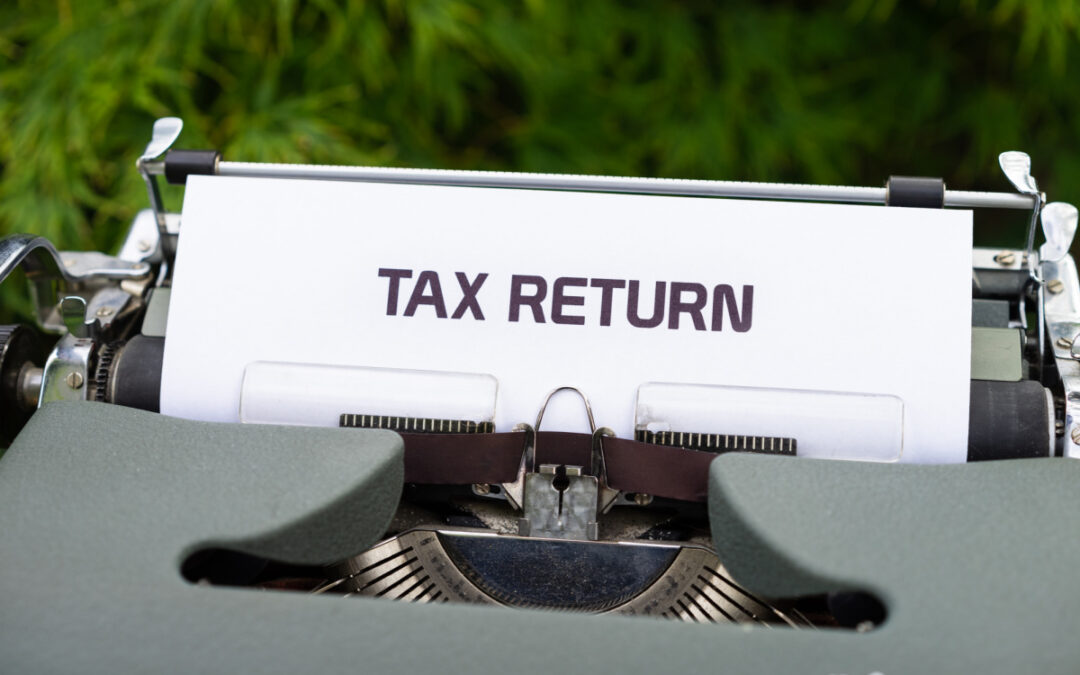When it comes to saving money on your annual tax return for your small business, are you aware of all of the opportunities you have to lower your tax bill?Learn more about which deductions you can start looking at to save your small business money over the coming year with these 10 Tax Deductible Expenses for Small Business Owners. Maximize your profits and keep more of your hard-earned money!
Take a look at these 10 Tax Deductible Expenses for Small Business Owners:
1.Home Office Deduction
During and after the pandemic, there has been a large shift to remote work and hybrid work environments. That means that many are now operating businesses out of a home office, which you are allowed to deduct the cost per square foot of the dedicated office space. This would also include self-employed freelancers and independent contractors.
The home office deduction includes the cost of utilities, so those expenses can’t be deducted separately. You also must meet specific requirements in order to qualify for the home office deduction. Learn more about how much you can deduct at the IRS Website.\
2. Health Insurance Premiums
Not many people tend to deduct medical expenses because there are so many roadblocks to doing so; however, there is a big exception to this if you are self-employed. When you own your business, you can deduct what you pay for medical expenses not only for yourself, but also for your family. This can be done whether you itemize on your tax return or not, which can be a huge benefit for many business owners.
This can also be a significant benefit if you continue to be self-employed after qualifying for Medicare. This is because the premiums you pay for Medicare Part B and Part D, PLUS the cost of supplemental Medicare policies or the cost of a Medicare Advantage plan, can also be deducted towards health insurance premiums.
Just know that you won’t qualify for the health insurance premium tax deduction if you’re eligible for an employer-sponsored health insurance plan through another job (such as through your spouse).
3. Business Travel, Meals Deductions and Entertainment
When it comes to traveling for business, it must last longer than an ordinary workday, require sleep or rest and take place away from the general area of your tax home. There should also be a specific business purpose planned before you leave and you must engage in a business activity while away.
Make sure you keep complete and accurate records, along with receipts for your business travel expenses and activities. Deductible expenses include the cost of transportation to and from your destination, transportation at your destination, lodging and meals.
You may be flagged by the IRS if you deduct lavish expenses, so work to keep things in line.
Ordinary meals and entertainment expenses are also a tax-deductible business expense when you are entertaining a client, vendor or staff. The activity must have a clear business objective, like promoting your business, gaining new clients, building rapport, networking, training staff, etc.
As with business travel, make sure you save all relevant receipts and note the business purpose for claiming this deduction. This will be essential when it comes time to file your taxes. Reference the IRS guidelines for current year deduction allowances.
4. Charitable Contributions
Many businesses make donations to various charities throughout the year for different reasons. Did you know you may be able to claim it on your tax return and use it to lower your tax liability? As long as the contribution is a cash donation and benefits a qualified charitable organization, you can deduct the contribution. However, if the business is set up as an LLC, sole proprietorship or partnership, your charitable contributions must be claimed on your personal income tax forms.
5. Business Insurance
Chances are, you have purchased insurance for your business in some form. It is key to maintaining the financial health of your company. Whether it’s for your business equipment, group health insurance for yourself and employees, along with other kinds of insurance, you can deduct the premium costs from your tax liability.
Different types of business insurance you can potentially deduct would be:
- Workers’ Compensation Insurance
- Life insurance
- Business interruption insurance if your business is shut down for various reasons
- General liability insurance
- Professional liability insurance
- Commercial property insurance
- Unemployment insurance
- Health insurance
- Malpractice insurance
- Auto insurance
It will depend on where your business is located, along with different qualification requirements, to know how much of each insurance cost you may be able to deduct. You can learn more about it on the IRS website, or work with your tax advisor on the best way to deduct different insurance items.
6. Business Use Of Your Vehicle
If you use your vehicle for business use, there are different methods that you can claim a vehicle deduction to write off driving expenses. It may be best to work with your tax advisor on what will work best for you and your business.
Most car expenses can qualify for at least partial deductions, including:
- Gas
- Maintenance and repairs
- Car insurance
- Registration fees
- Lease payments
- Tolls
- Parking fees
- License fees
The amount of many of these deductions will depend on if the car is used solely for business, or if it is also your personal vehicle that you also use for business purposes. Make sure you keep detailed records of each trip’s date, mileage and purpose and don’t try to claim personal car trips as business car trips!
7. Depreciation
If you own assets that are essential to your business, you may be able to write off the depreciation from your income taxes. Depreciation works by deducting a percentage of the expense annually for five to seven years. Alternatively, you may claim 100% of the expense at once (up to a certain limit) in the year the item went into service. Examples include:
- Real estate
- Computers and electronic equipment
- Machinery
- Business use vehicles
- Office furniture and appliances
There are restrictions when it comes to deducting depreciation, however. Make sure you follow the guidelines that the IRS updates for every tax year, as well as work with a tax professional to ensure you are deducting the amount of depreciation that you have earned.
8. Retirement Plan Contributions
If you own your own business, once deduction that is incredibly helpful is the deduction for self-employed retirement plan contributions. This will help to reduce your tax bill now and will also help you rack up tax-deferred investment gains for later in life. You can deduct contributions if you have one of the following retirement accounts:
- Roth IRA
- Traditional IRA
- Keogh plan
- Solo 401(k)
Your total IRA contributions can’t exceed the total income you earned that year or it can’t exceed the annual maximum contribution, whichever is less. Every tax year sees the contribution deduction change, so make sure you follow the IRS guidelines and talk to your tax professional to take full advantage.
9. Education
Did you work on maintaining or improving your skills for your existing business over the previous year? Educational expenses that you concur might be able to be deducted from the cost of your taxes. The education costs must meet the following qualification:
- The program maintains or improves the skills necessary for your current job
- You must legally take the course to keep your salary or job
- The program can’t be used to help you learn skills for a new trade or business
Some examples of continuing education costs that are tax-deductible include:
- Classes and workshops (online or in-person) in your field
- Subscriptions to professional trade publications relevant to your business
- Seminars and webinars that apply to your business
- Books needed for research and related to your industry
- Networking events
- Fees associated with necessary qualification or certificate programs
10. Advertising And Marketing
Do you spend money advertising and marketing your business? Luckily, the IRS considers any cost relating these items to be tax-deductible. This includes billboard promotions, online advertising and even the cost of producing advertising materials, such as business cards and logos.
Digital and print advertising, along with website design and maintenance are also deductible expenses when it comes to lowering your tax obligation. Also, don’t forget about social media items, such as the cost to produce and edit the photos and videos you may share. Things like the cost of your photographer/videographer, editing expenses, equipment, photoshoot props and the cost to rent out different spaces to shoot in can all be deducted.
Like all other of these 10 Tax Deductible Expenses for Small Business Owners, make sure to keep track of everything you use to market your business, along with the dates and costs that you incurred any potential deductions to claim.
Keep more of the money you work so hard to earn! It’s important to track and log different expenses throughout the year, so make sure you don’t wait until tax time to put everything together. It will make your life much easier and you’ll also have proof of all of your expenses, should your business ever be audited.
Remember, the more deductions you claim, the lower your taxable income will be. And the lower your taxable income, the less you’ll owe Uncle Sam at tax time! Contact us with any questions you may have about these 10 Tax Deductible Expenses for Small Business Owners.

